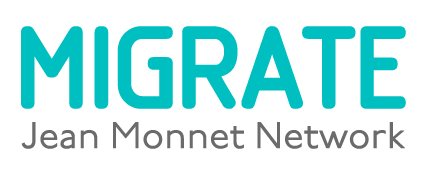The migrant crisis in Europe has recently assumed massive proportions creating a series of reflex reactions by various European states, including closing borders and reconsidering the viability of the EU integration project. The MIGRATE Jean Monnet network focuses on the effect that the migrant crisis has on the socio-political and economic environment of the entry/transit countries and the way that this affects the process of and is being affected by the degree of EU enlargement and integration. The network addresses the question ‘To what extent can further EU integration and enlargement offer a viable solution to the migrant crisis?’ The countries under examination are a mixture of both EU and non-EU states forming one of the main corridors formerly used by economic migrants and refugees to reach Northern Europe. Despite the fact that the corridor has been officially closed since March 2016, there is a considerable number of irregular migrants confined inside these countries. The fragmented nature of the corridor, through EU/Schengen and non-EU/non-Schengen states, creates a multitude of issues for the Union related not only to border security, but also to its socio-political and economic stability. Every transit state affected by the migrant crisis is also affected by the sum of the crises occurring worldwide including the global financial crisis, the global migrant crisis and the lack of a coordinated international policy in the international system, all of which are interconnected and mutually reciprocal. The goal of MIGRATE is to create a forum for debate and dialogue. A network of researchers from all the main transit countries is created with the purpose of looking at the specific characteristics of the migrant crisis experienced by different countries with different political economies, different relations to the EU and different levels of exposure to the current crises. The analysis will take place within the framework of the effectiveness of EU integration and enlargement. It is suggested that further EU integration and enlargement, in order to include the Western Balkans and Turkey, might be key to controlling migrants’ influx in the Union.
Share this on
MIGRATE: CTRL+Enter Europe: Jean Monnet Migrant Crisis Network

|
Project Concept
Project Results
- A network for debate and dialogue on EU integration and the migrant crisis in the Balkan region will be created. One of the main priorities of the network will be to inform academia, policy makers, the third sector and the wider public of its research activities and analysis results on the migrant crisis, through open events and the online presence of its members (op-eds, podcasts etc).
- Research produced on the socio-economic and political consequences of the migrant influx on the countries of the Balkan corridor will add to our improved understanding of the crisis. The research conducted will lead to an edited book.
- A policy paper will be produced with the aim of suggesting feasible solutions to the migrant crisis inside the framework of further EU integration.
Duration
01/09/2016 - 31/08/2019
SEERC Budget
64.000 €
Funding
Jean Monnet Networks
Partners
- University of Belgrade, Serbia
- University of Sheffield, United Kingdom
- Ss. Cyril and Methodius University in Skopje, Former Yugoslav Republic of Macedonia
- Central European University, Hungary
- Bilkent University, Turkey
- University of Graz, Austria
- Navarino Network, Greece
- Konrad Adenauer Stiftung , Germany
Participating Researchers
- Dr Elina Ketikidi (project team lead)
- Dr Alexandra Prodromidou, CITY College, University of York Europe Campus, Business Administration and Economics Department
- Nikos Zaharis, SEERC




